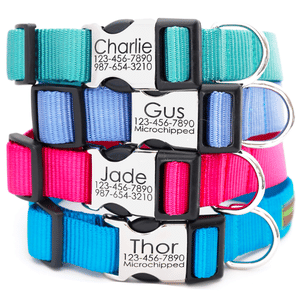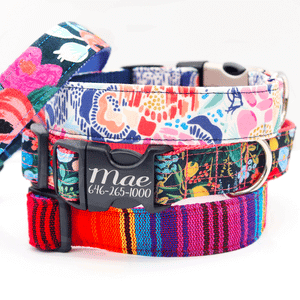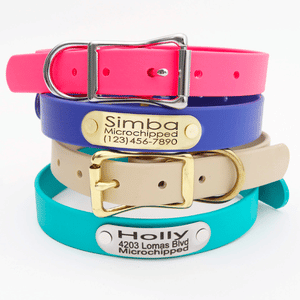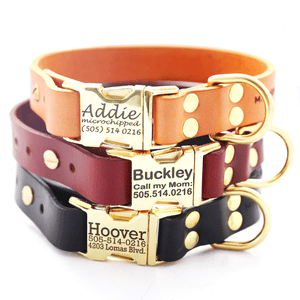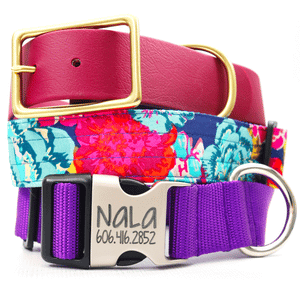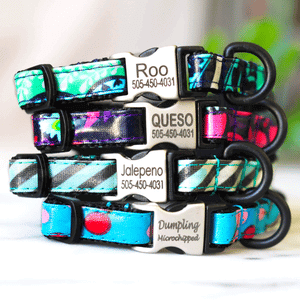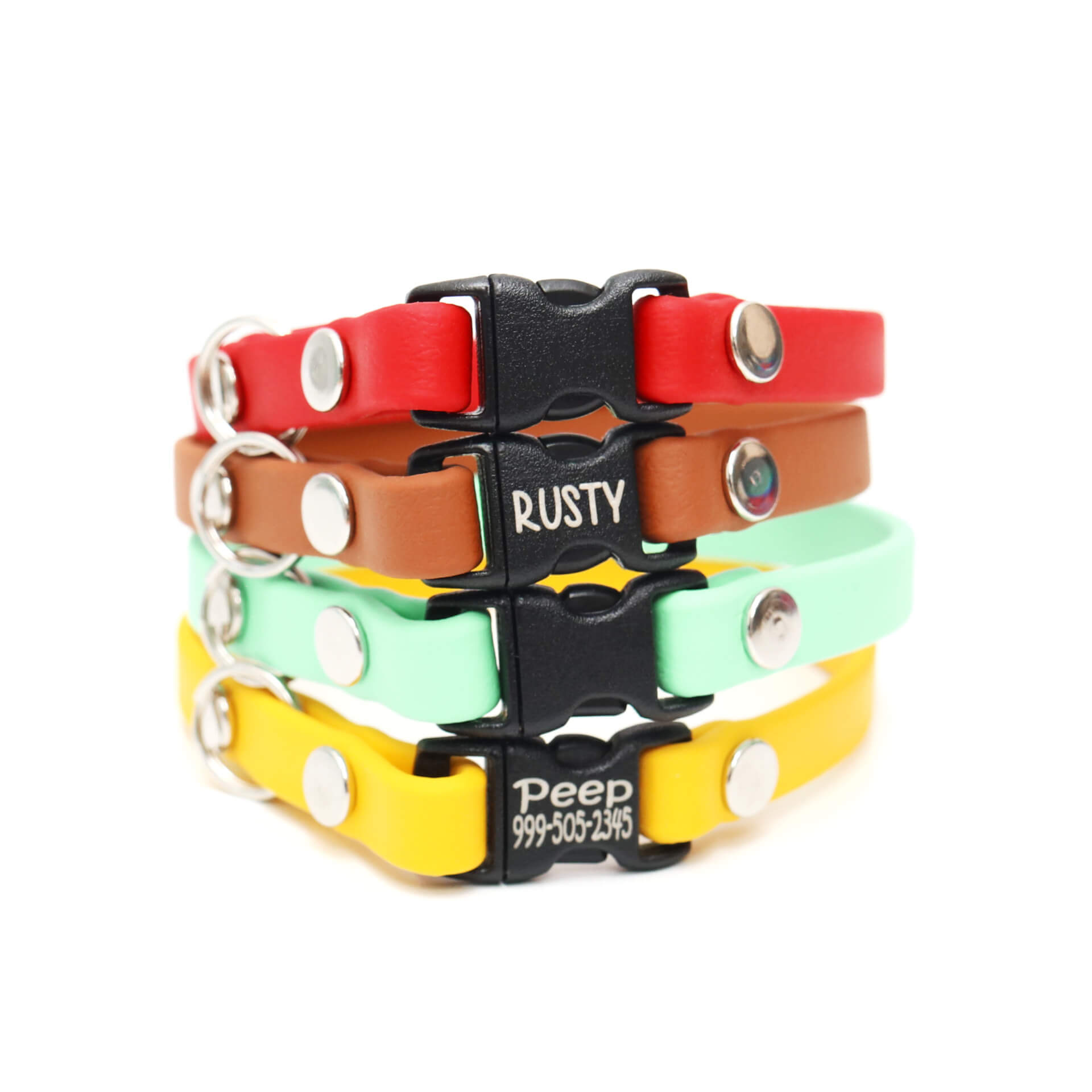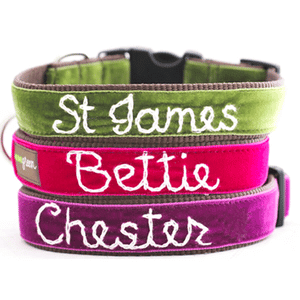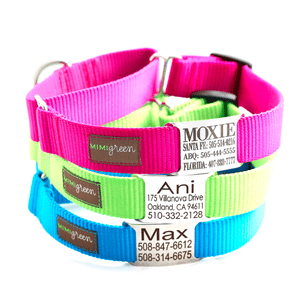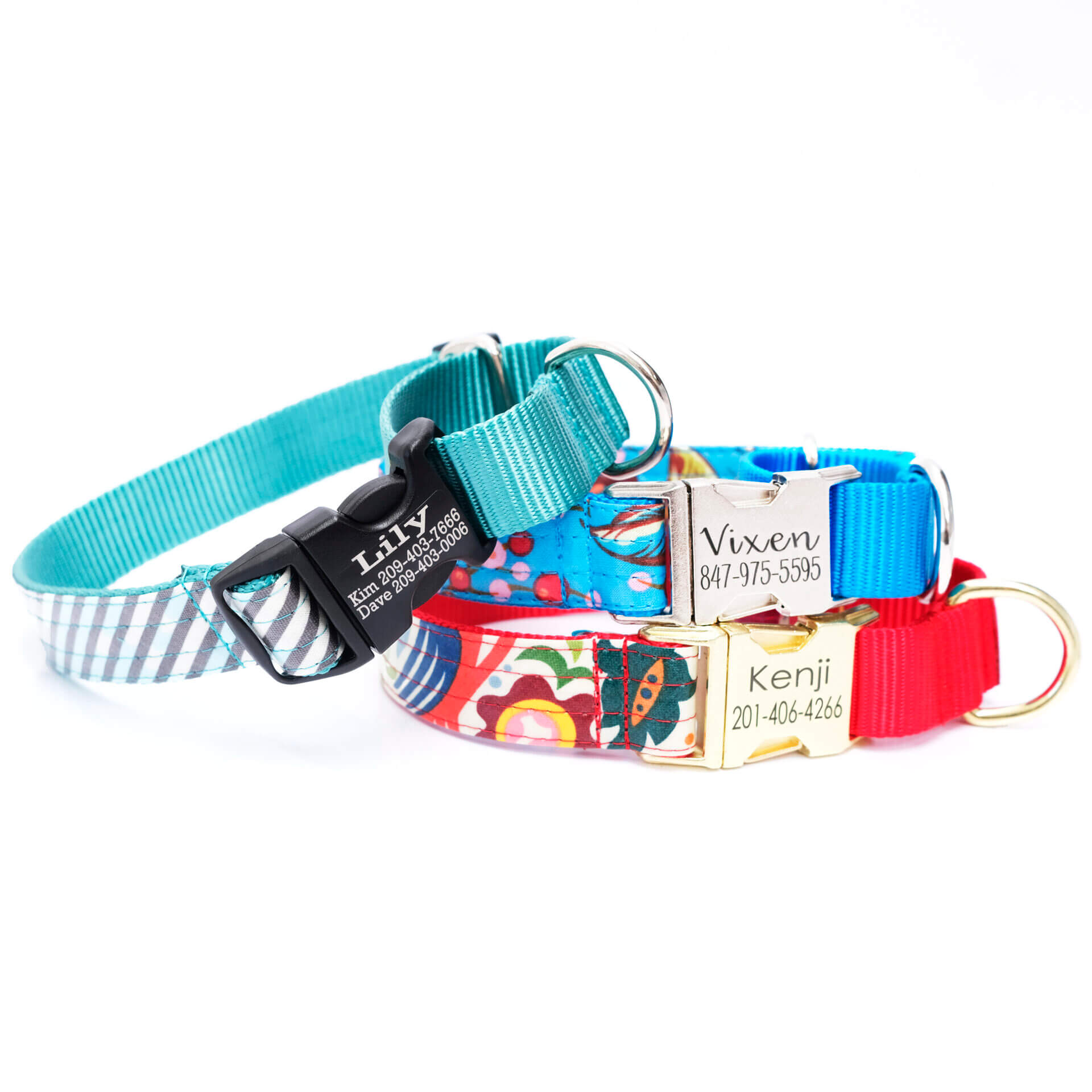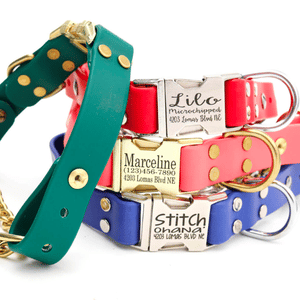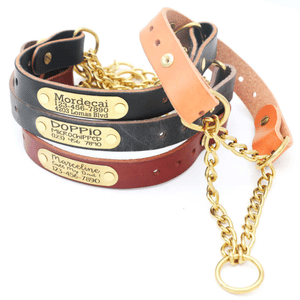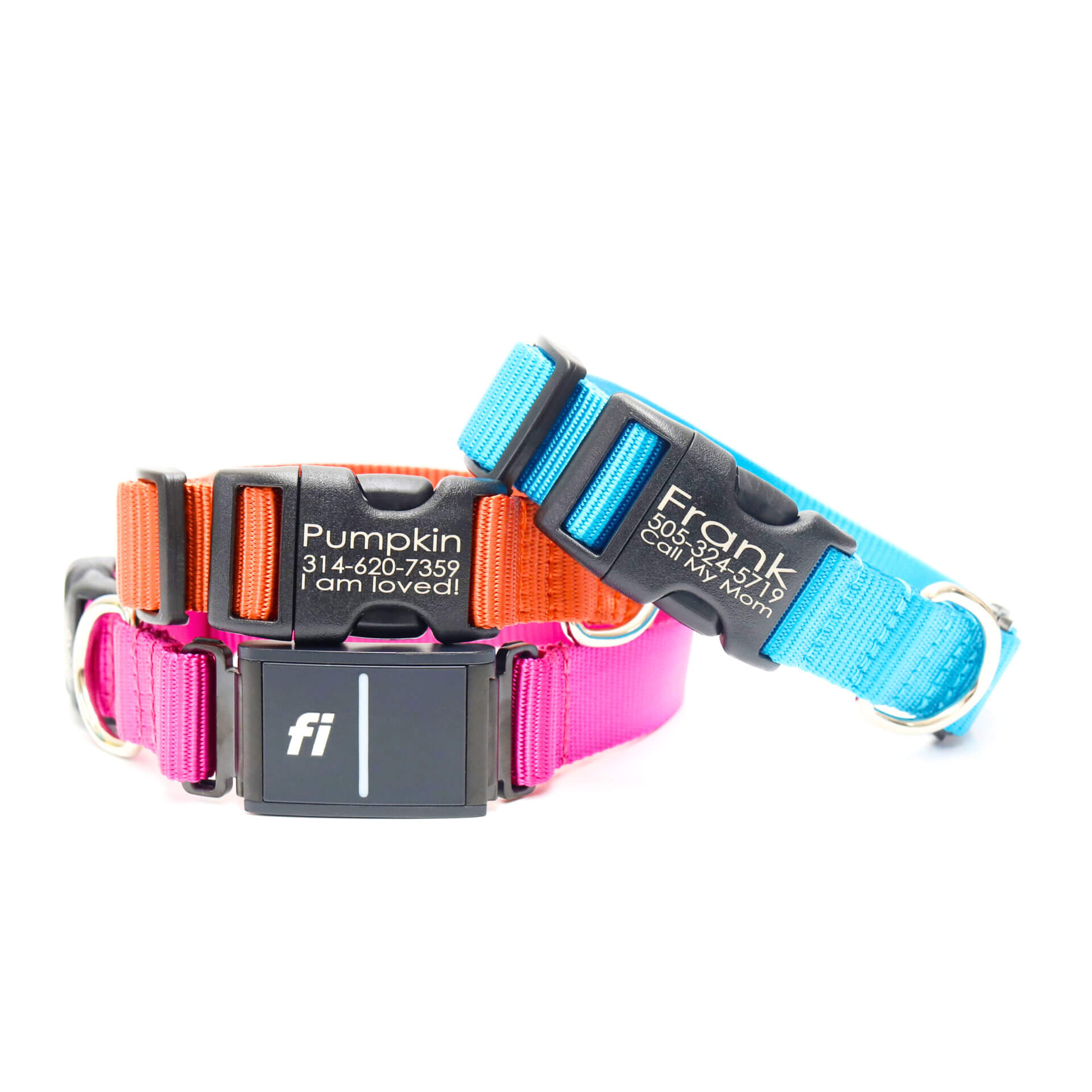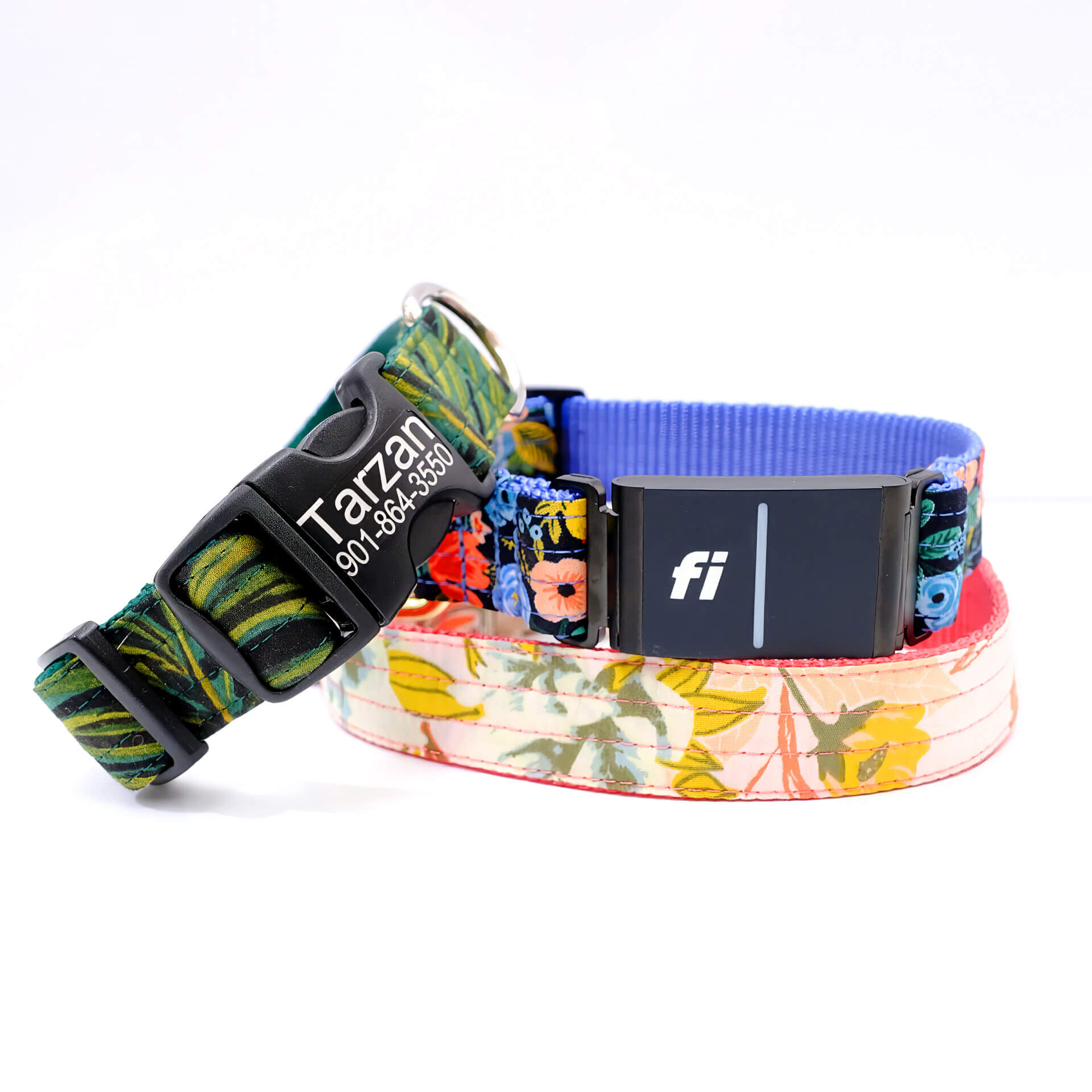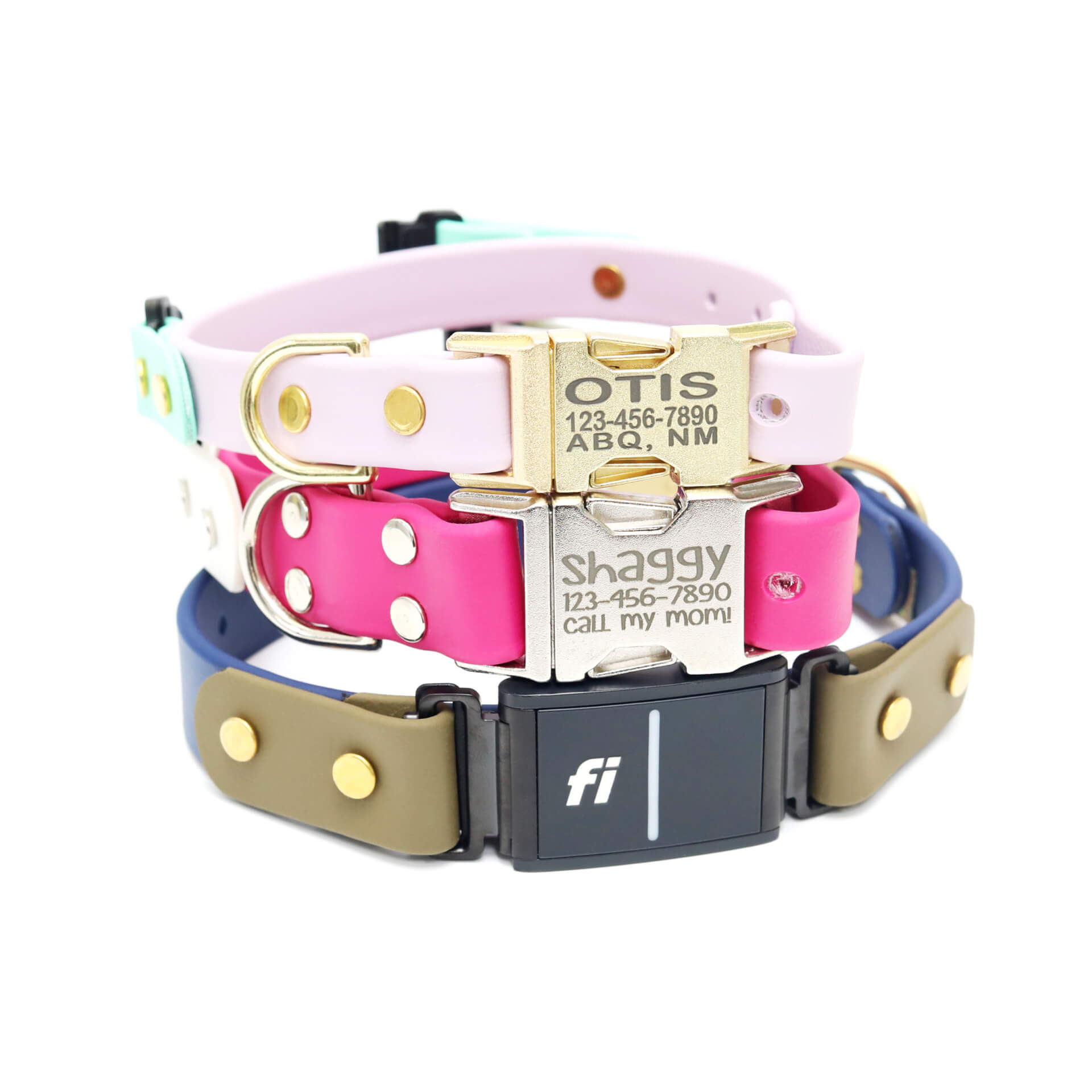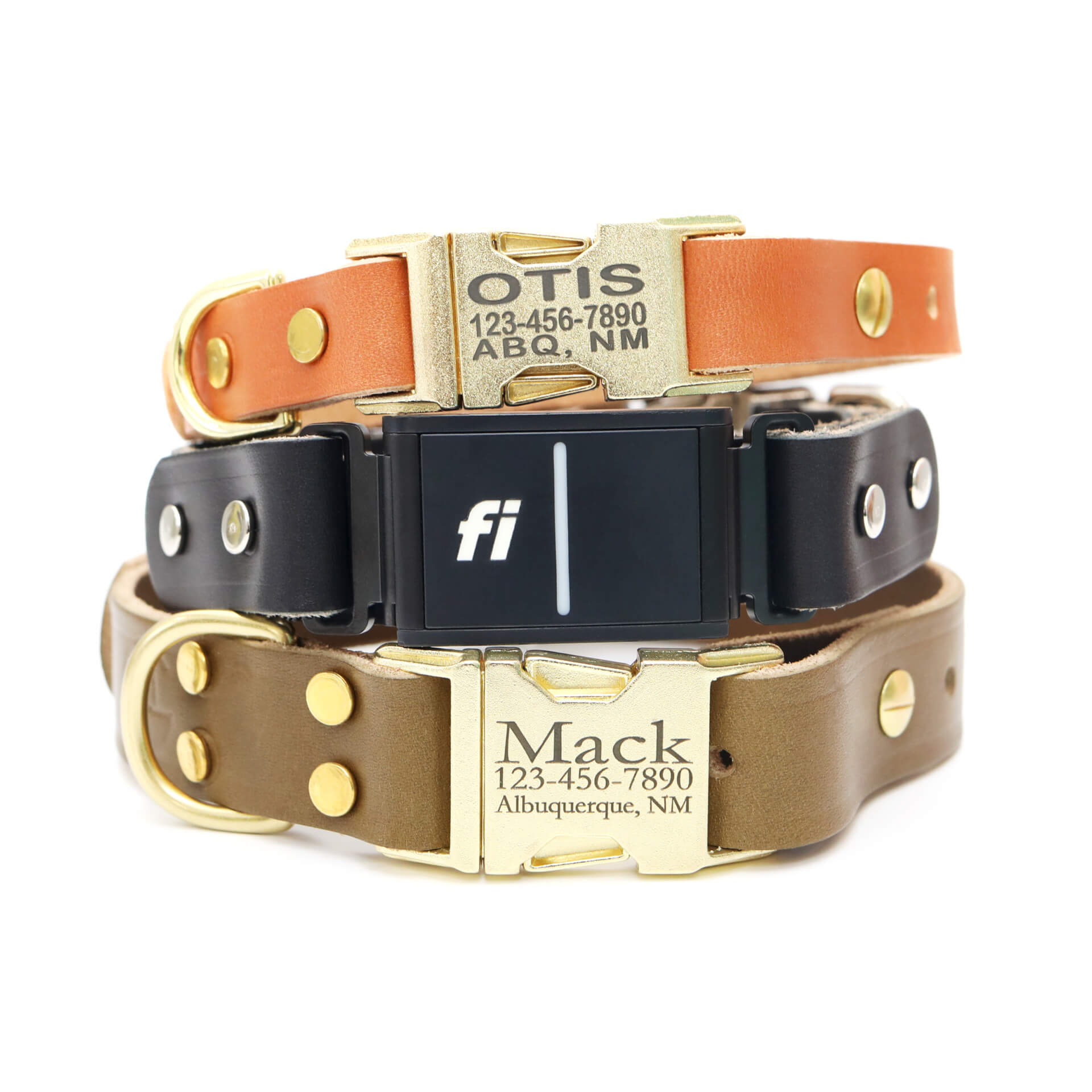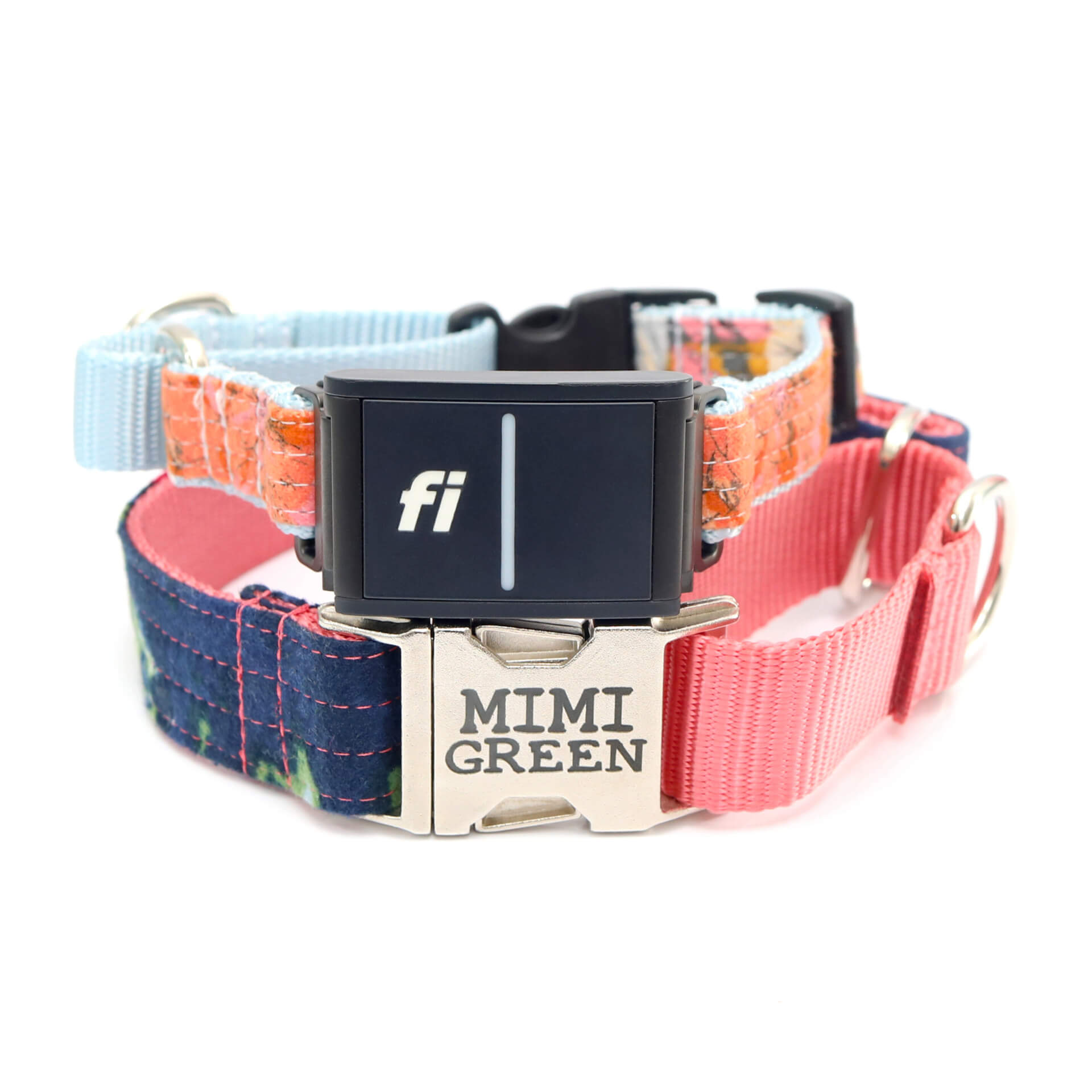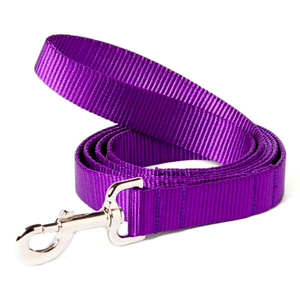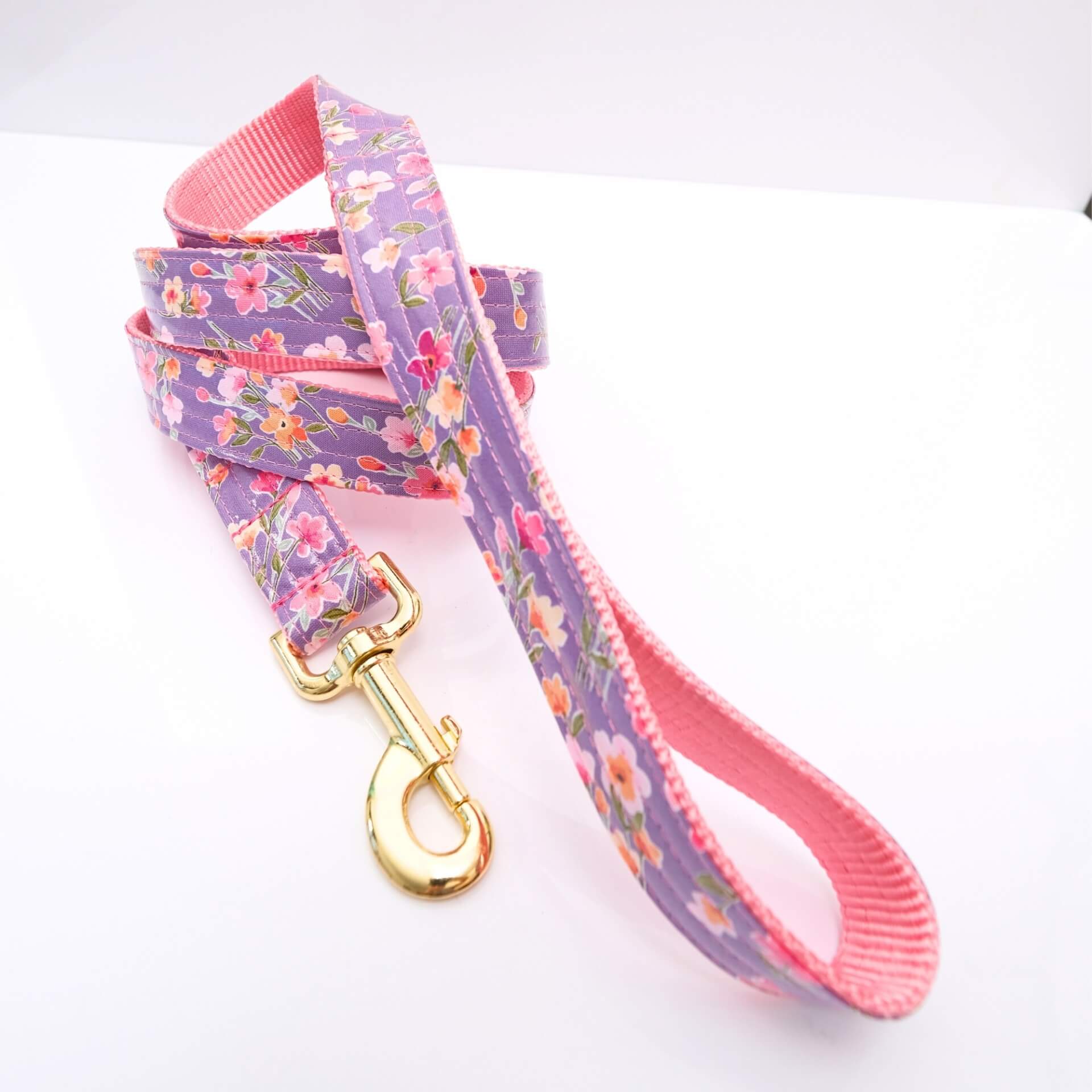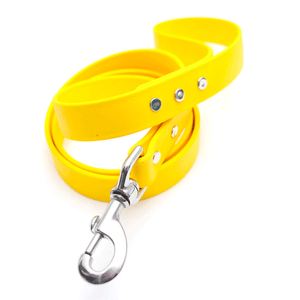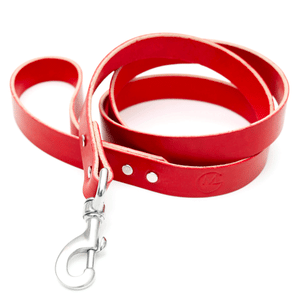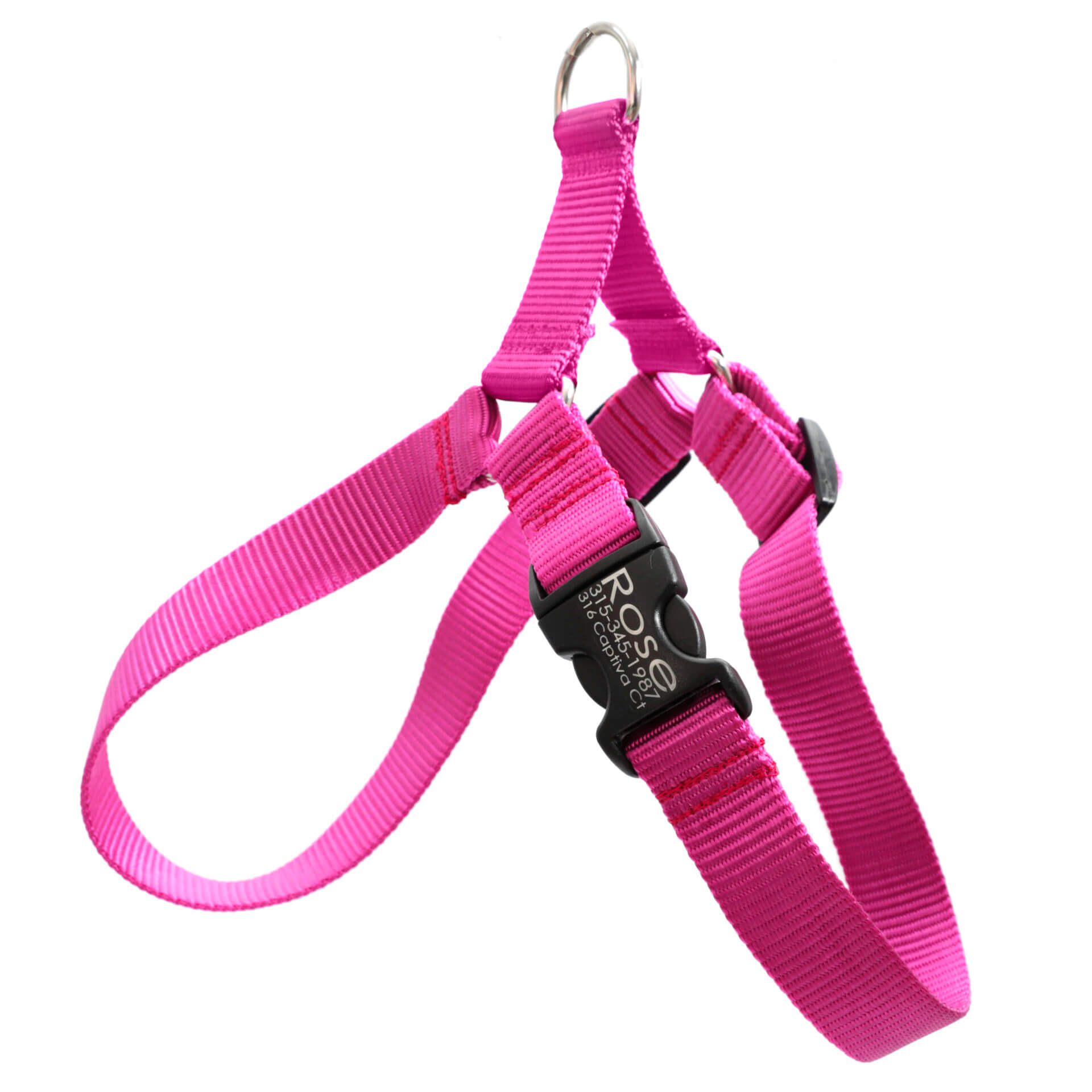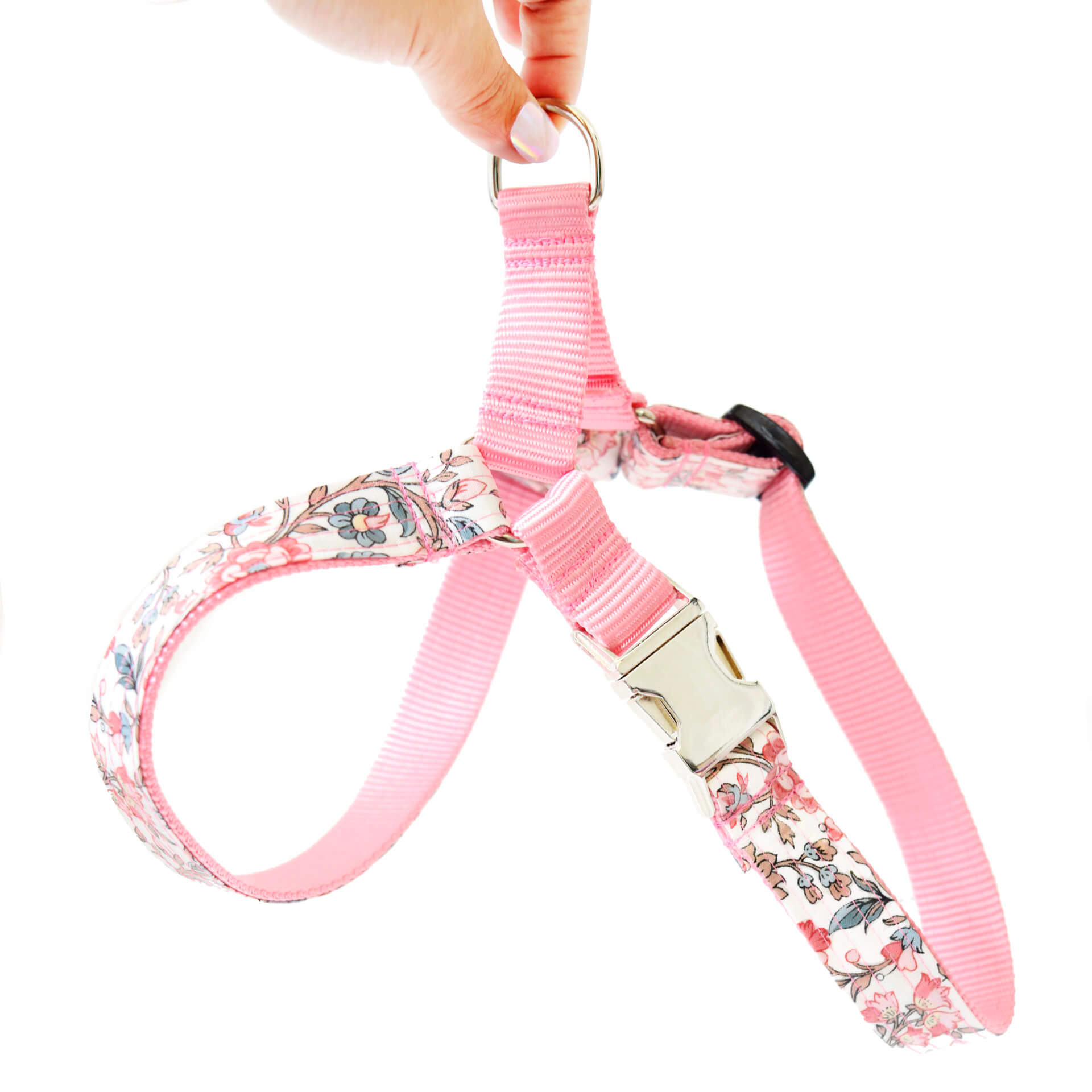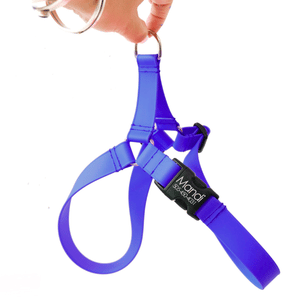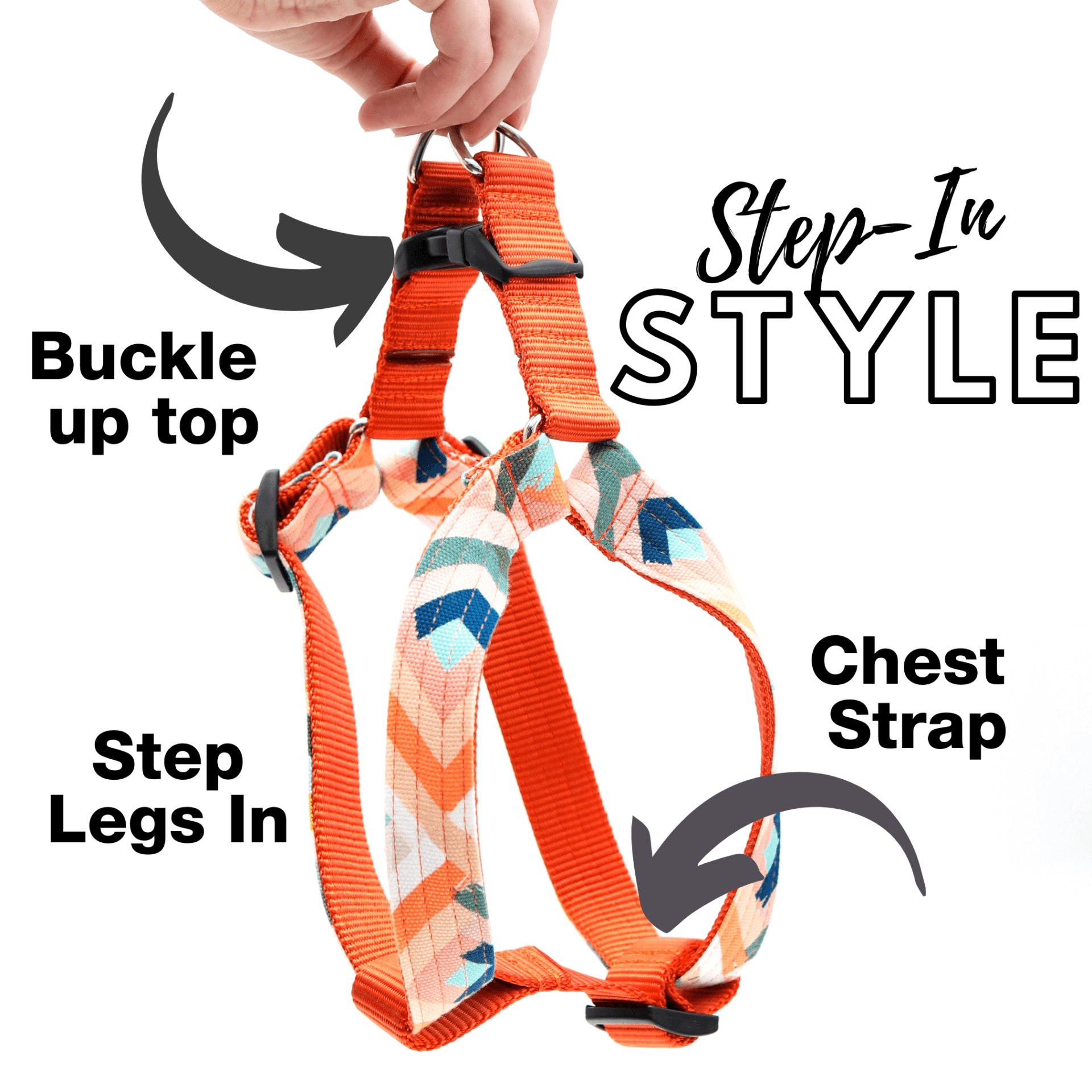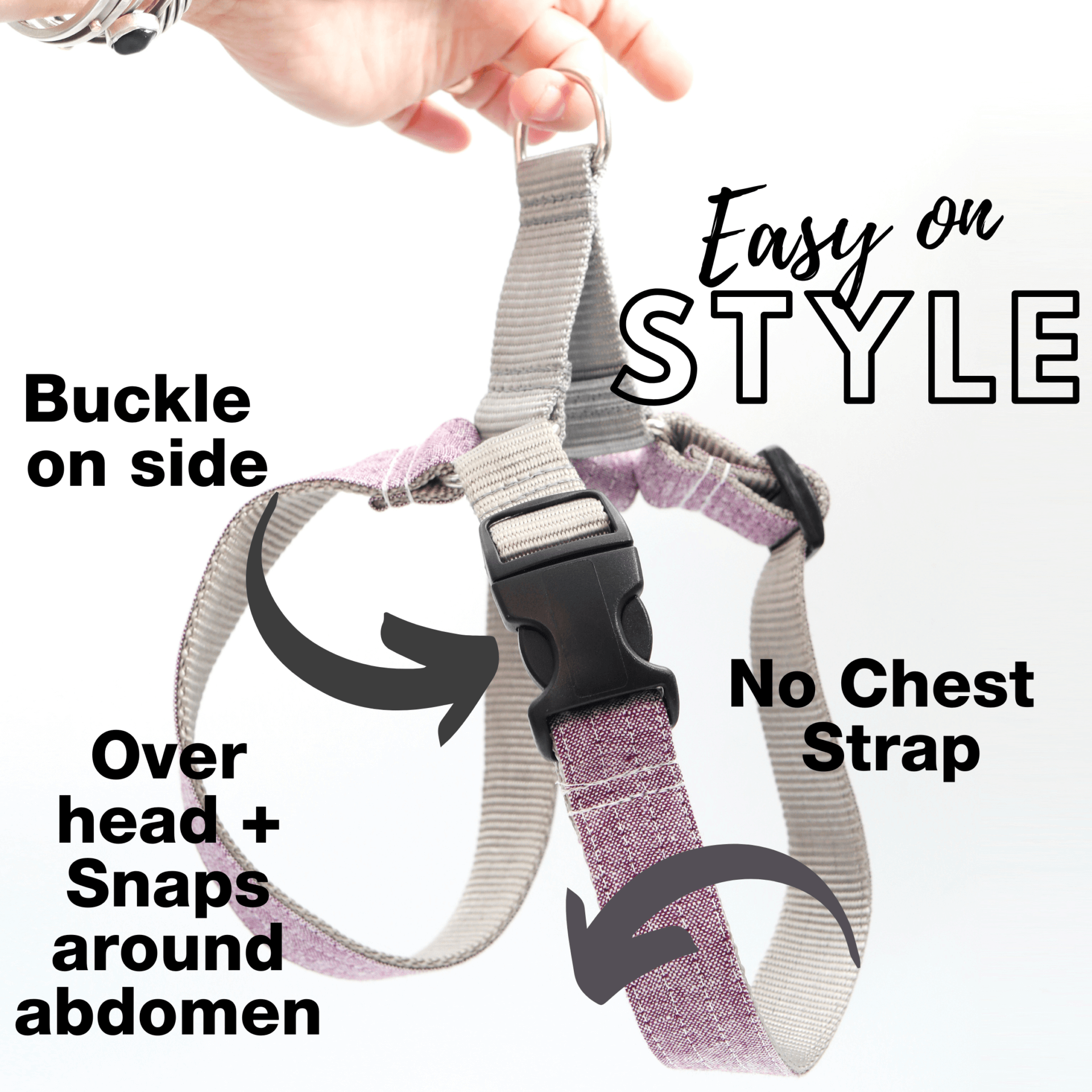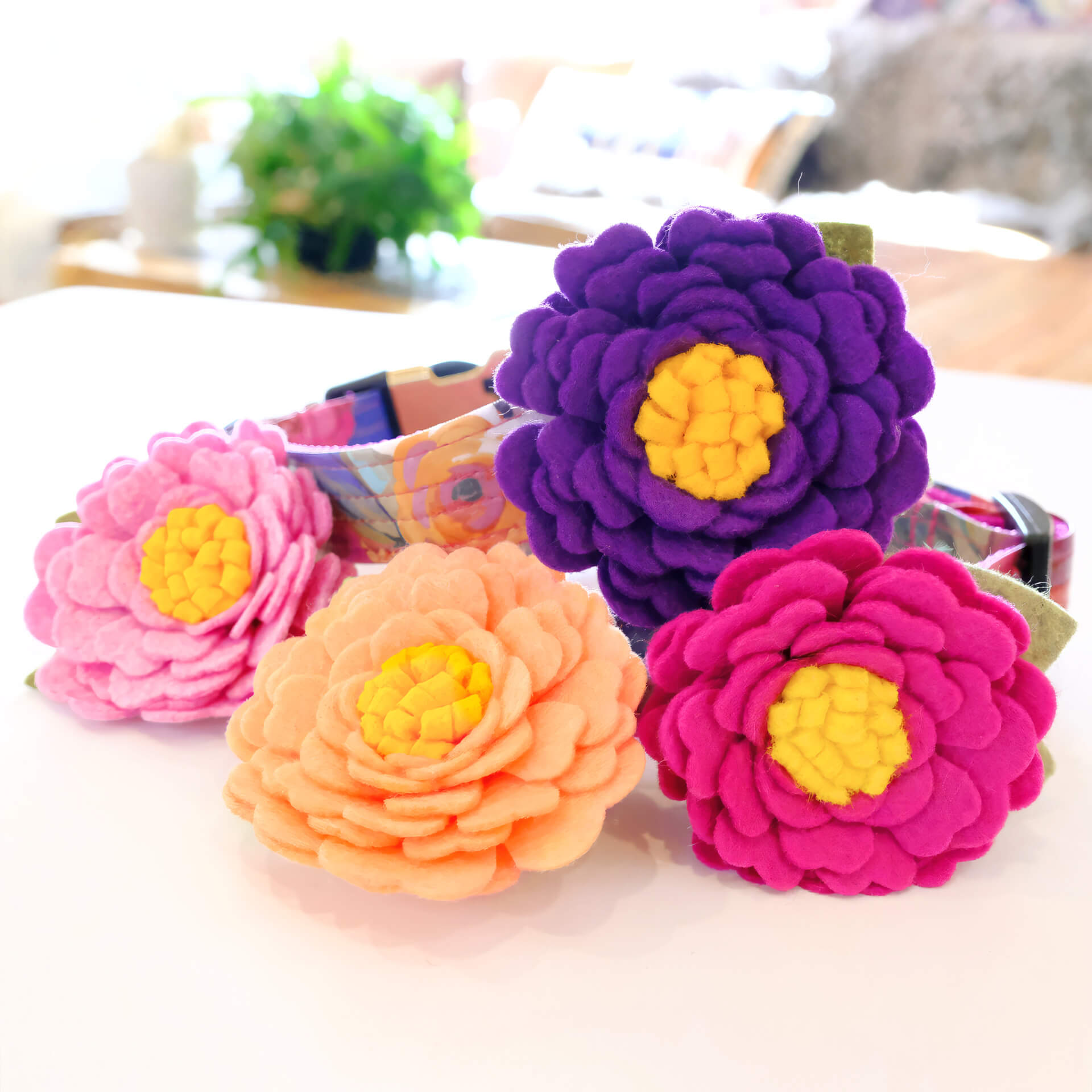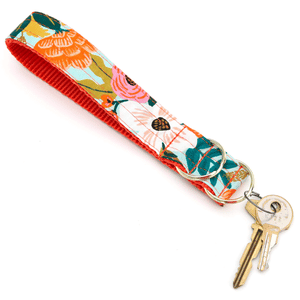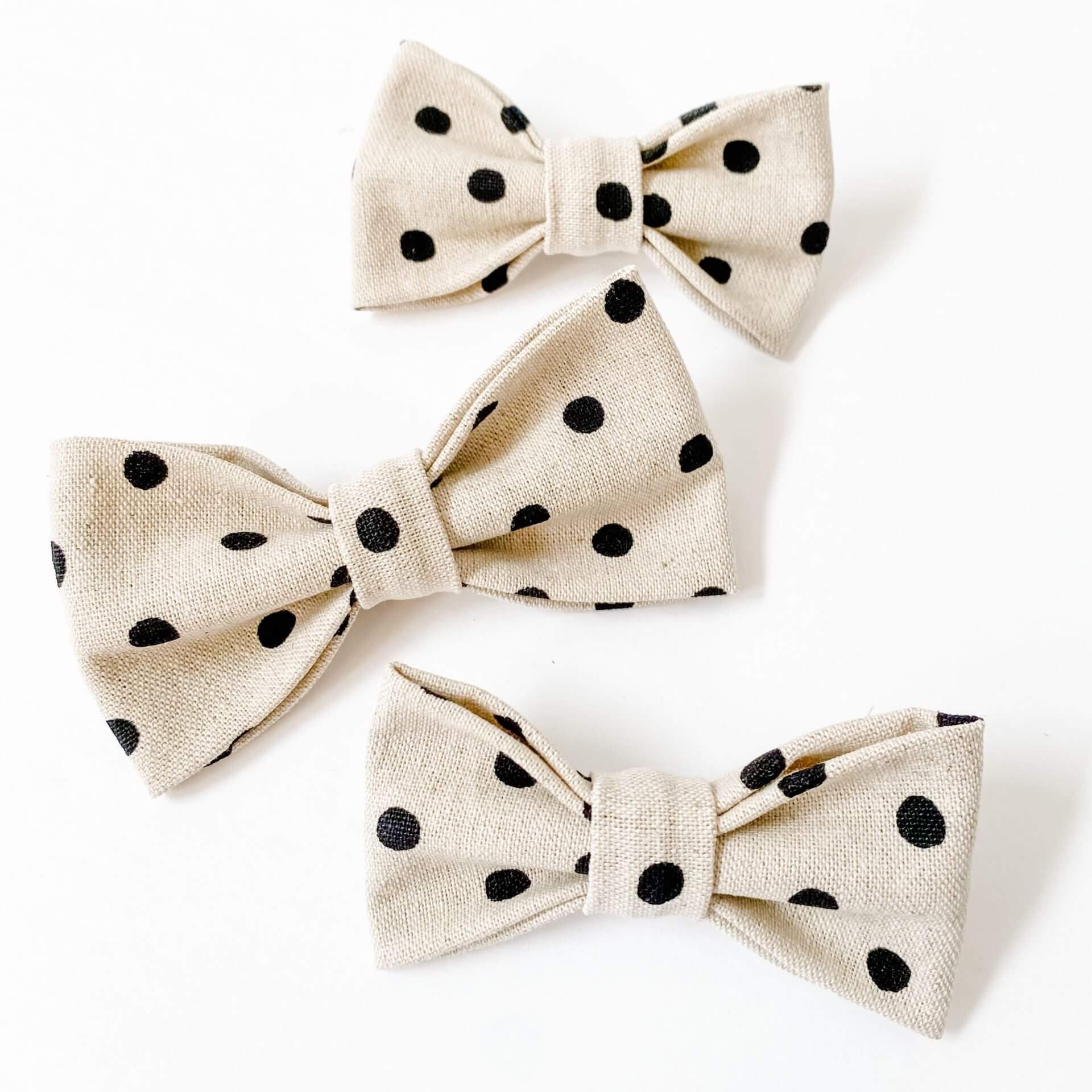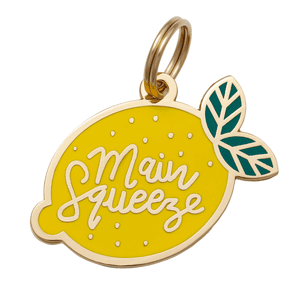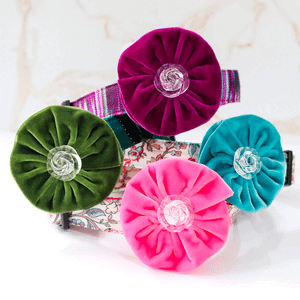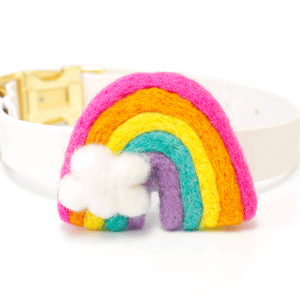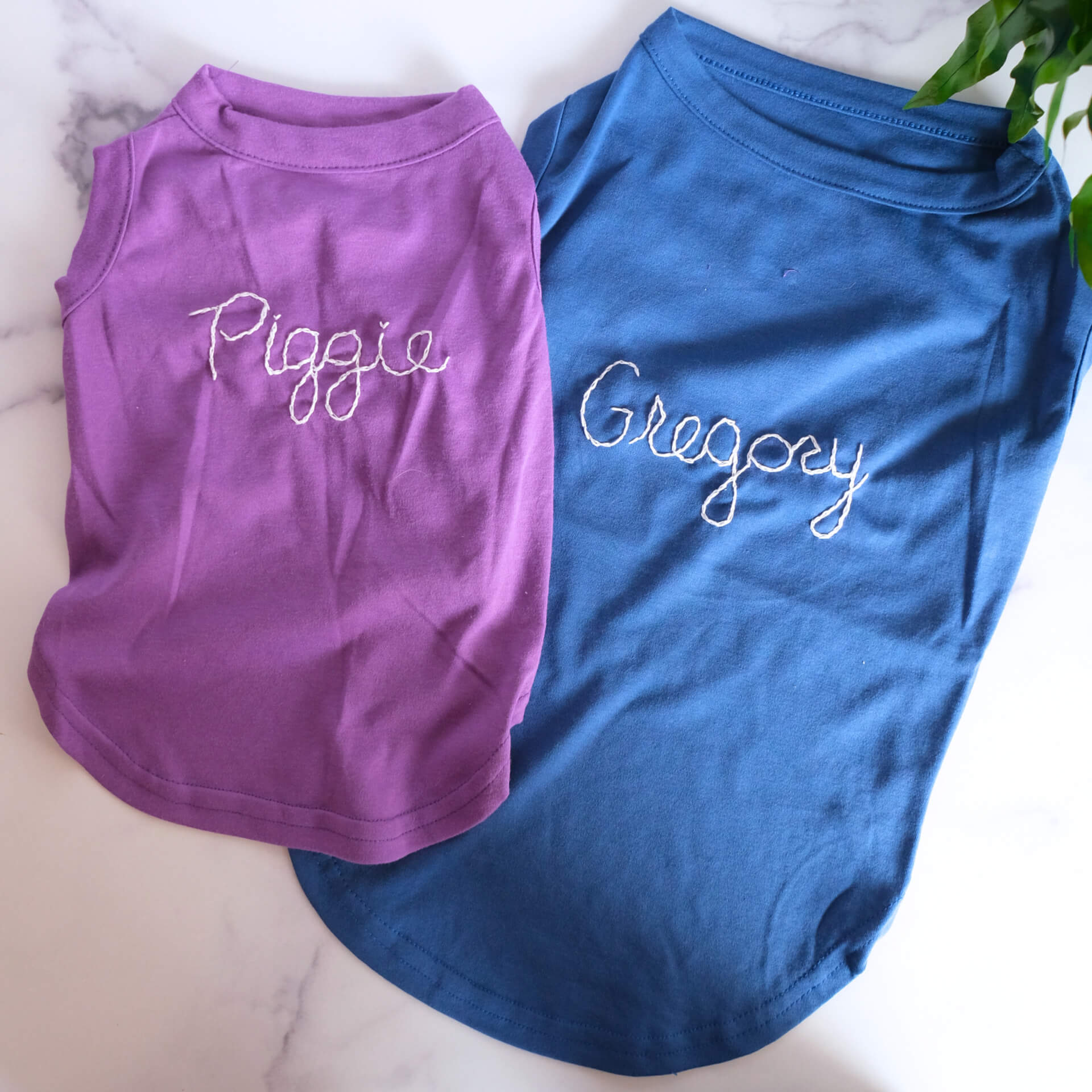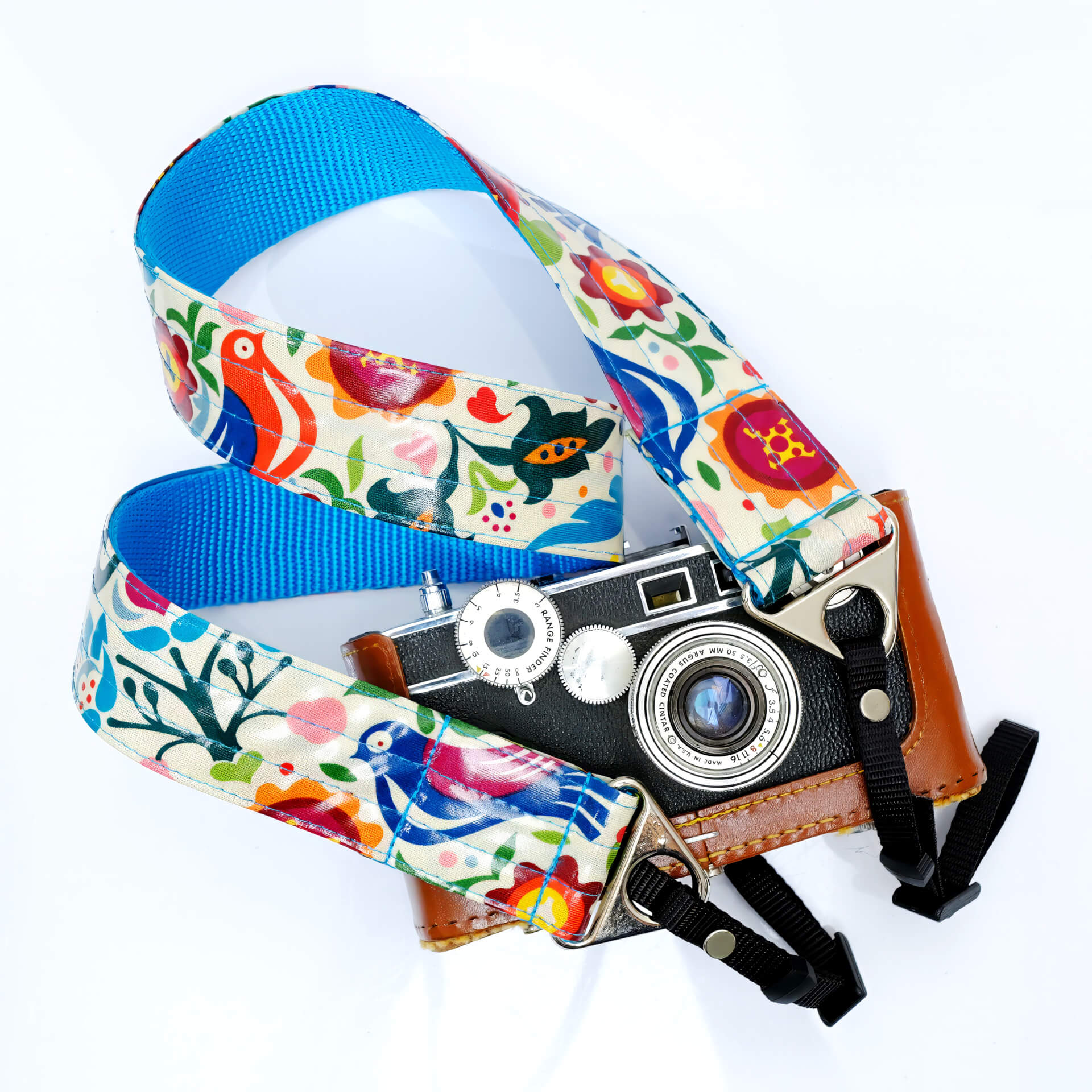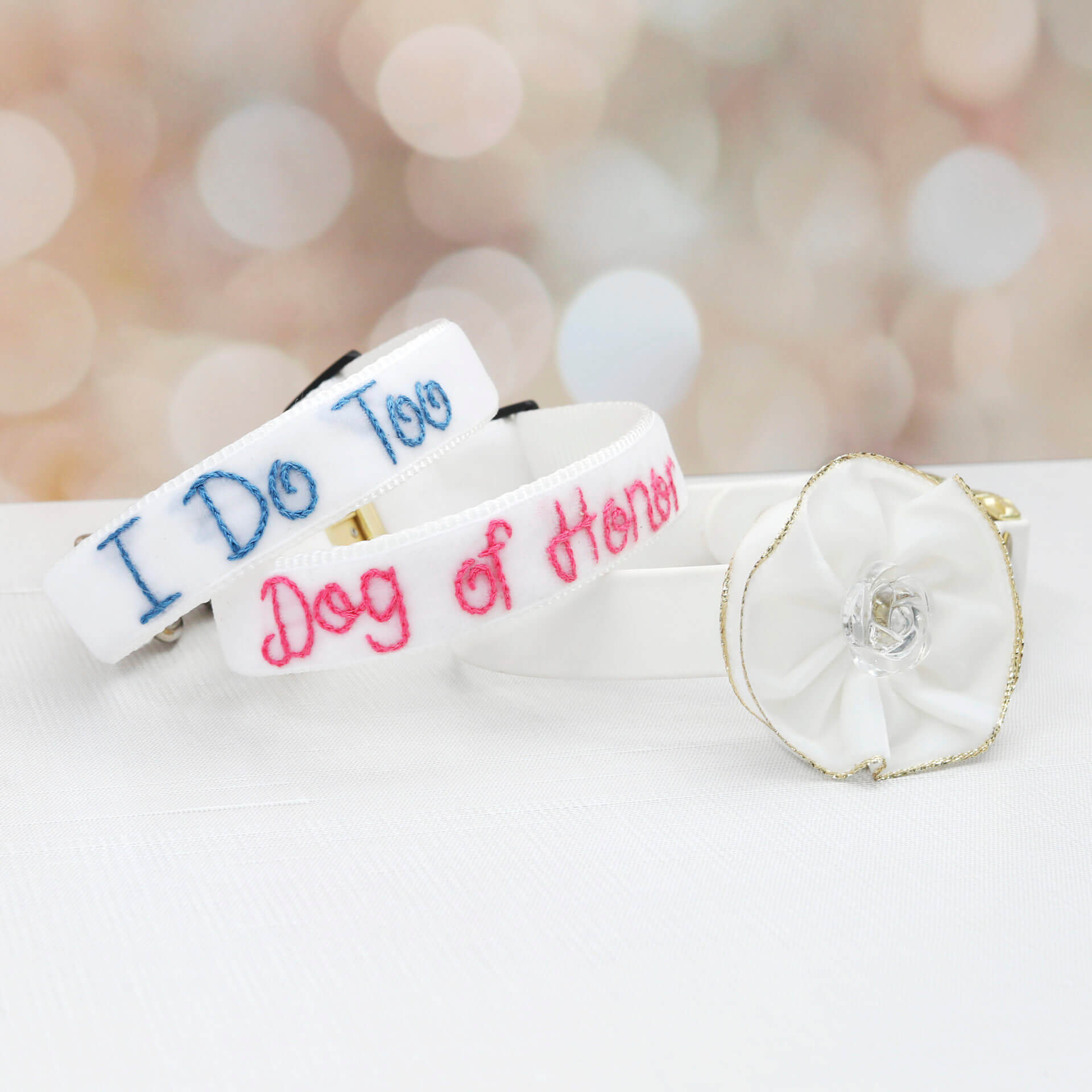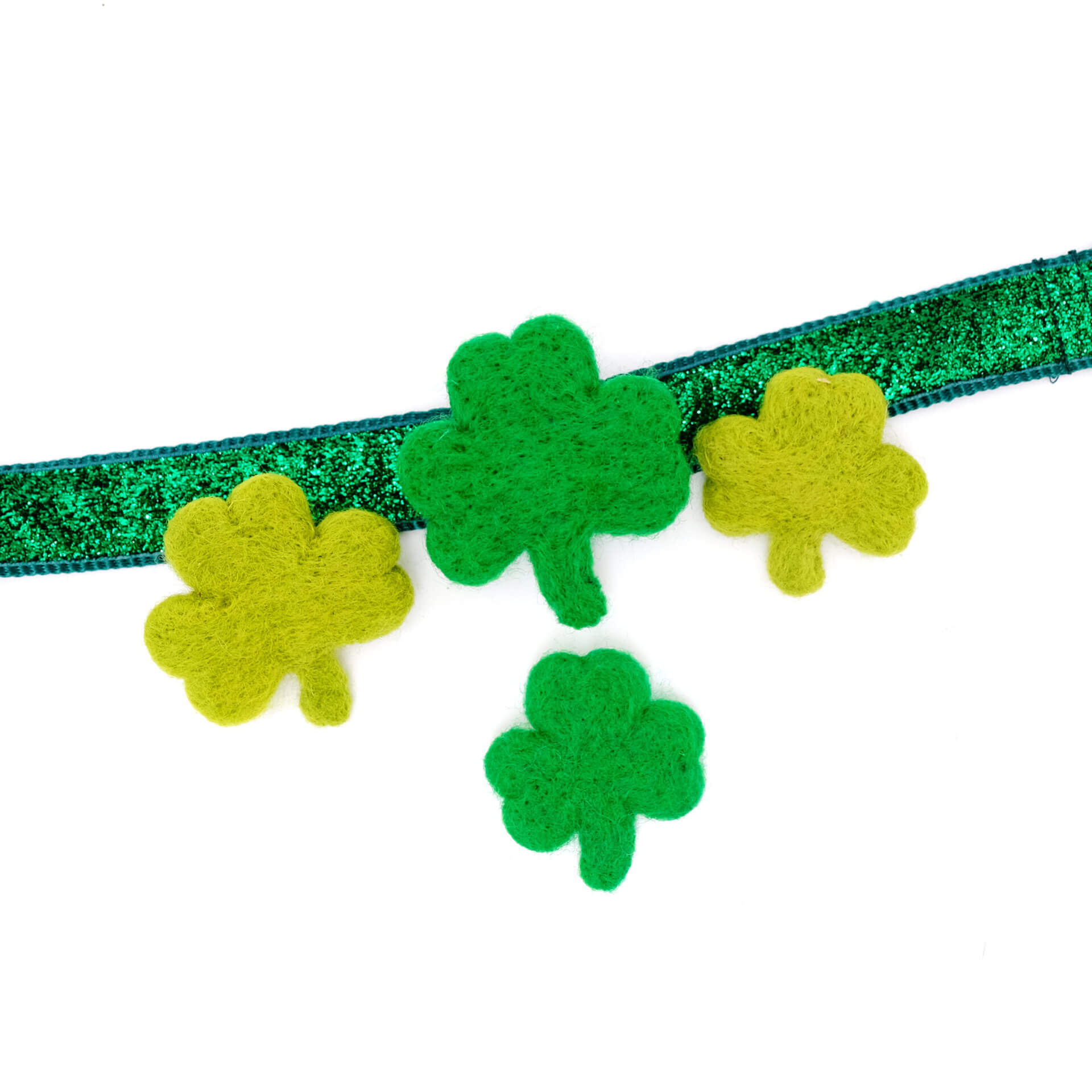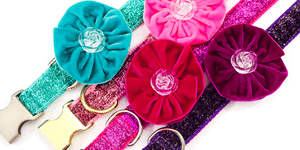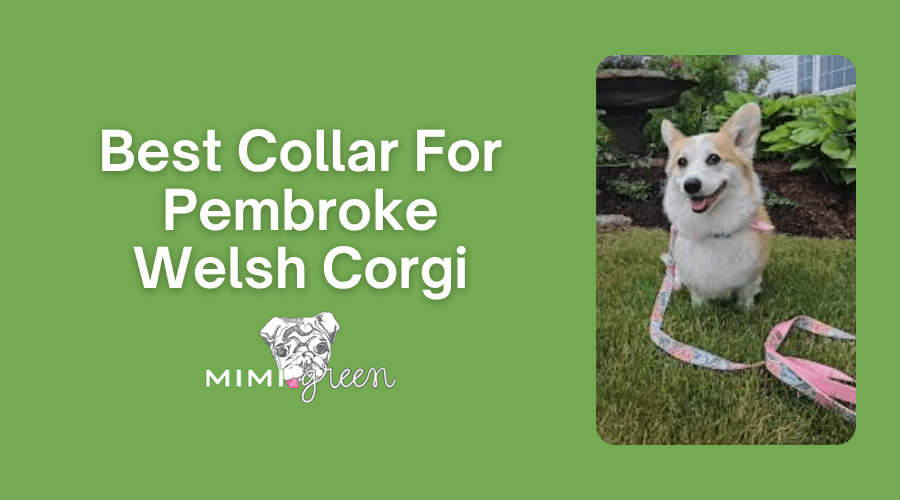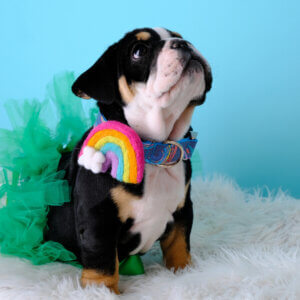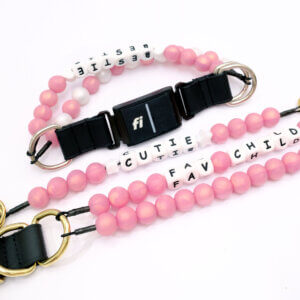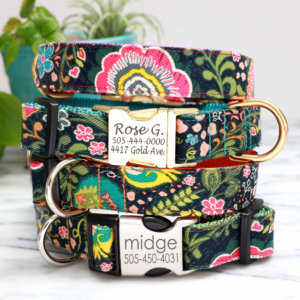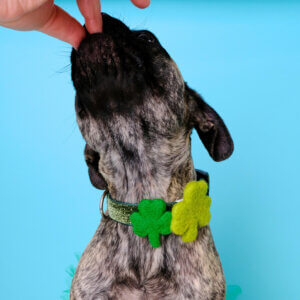Blog
Best Collar for Pembroke Welsh Corgi | Secure & Stylish Fit
The best collar for a Pembroke Welsh Corgi is a secure, slip-resistant Martingale that prevents escape without harming their neck. Due to their thick necks and active nature, Corgis need a collar that balances comfort, control, and style, ideally one that adjusts as they grow.
Corgis have unique proportions, thick necks, short legs, and surprisingly agile bodies, which means not every collar fits well or holds up. A flat collar might look cute, but it can slip off easily. A harness might reduce strain, but it won’t replace the control a well-fitted collar provides.
At Mimi Green, we handcraft Martingale and Fi-compatible collars designed specifically for dogs like the Corgi. With options in waterproof Biothane, soft velvet, and custom embroidery, you can keep your pup safe and stylish on every adventure.
Want the full scoop on Corgi collar fit, features, and what to avoid? Keep reading, we break it all down below.
Best Collars for Pembroke Welsh Corgis
Short on time? Here’s a quick guide to Mimi Green’s top collar picks for Pembroke Welsh Corgis, each crafted to match their quirky build and bold personality.
- Martingale Collar – Offers gentle control and prevents slip-outs.
- Velvet Collar – Soft, stylish, and kind to your Corgi’s thick coat.
- Waterproof Biothane® Collar – Perfect for puddle stompers and rainy walks.
- Reflective Collar – Low to the ground = hard to see at night. This helps.
- Fi Compatible – GPS tracking + activity stats in one sleek setup.
All Mimi Green collars are made to order in the USA, with custom sizing and personalization available for that just right fit.
What Makes Corgis Tricky to Fit for a Collar?
Corgis may be small, but their shape and spunk make collar fit a real challenge. Their thick necks, short stature, and sturdy builds can cause common collars to ride up, rub, or even slip off completely.
- Their necks are often wider than their heads, so a flat buckle collar can slide right off if they back up suddenly.
- Corgis are energetic, quick to pivot, and known to pull, especially when they spot a squirrel.
- Their dense double coats trap heat and moisture, which can lead to irritation under certain materials.
- One-size-fits-all doesn’t cut it. A collar that fits a Terrier won’t necessarily fit your little herder.
That’s why Corgi parents need collars that are secure, adjustable, and designed for their shape, not just their size.
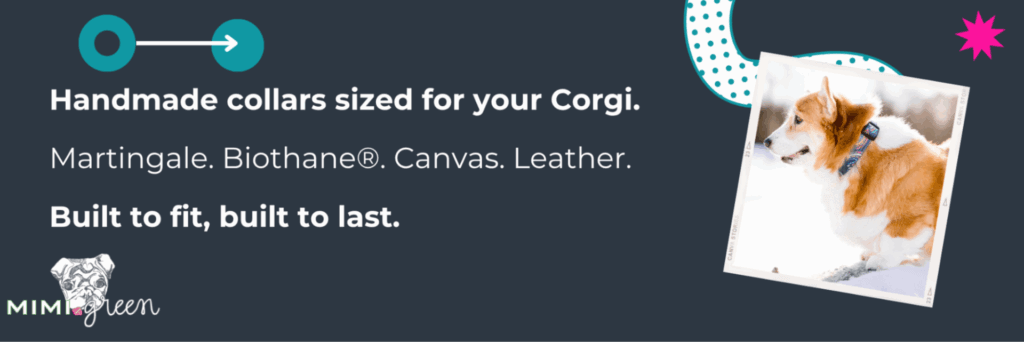
Martingale vs Flat Collar: What’s Better for Corgis?
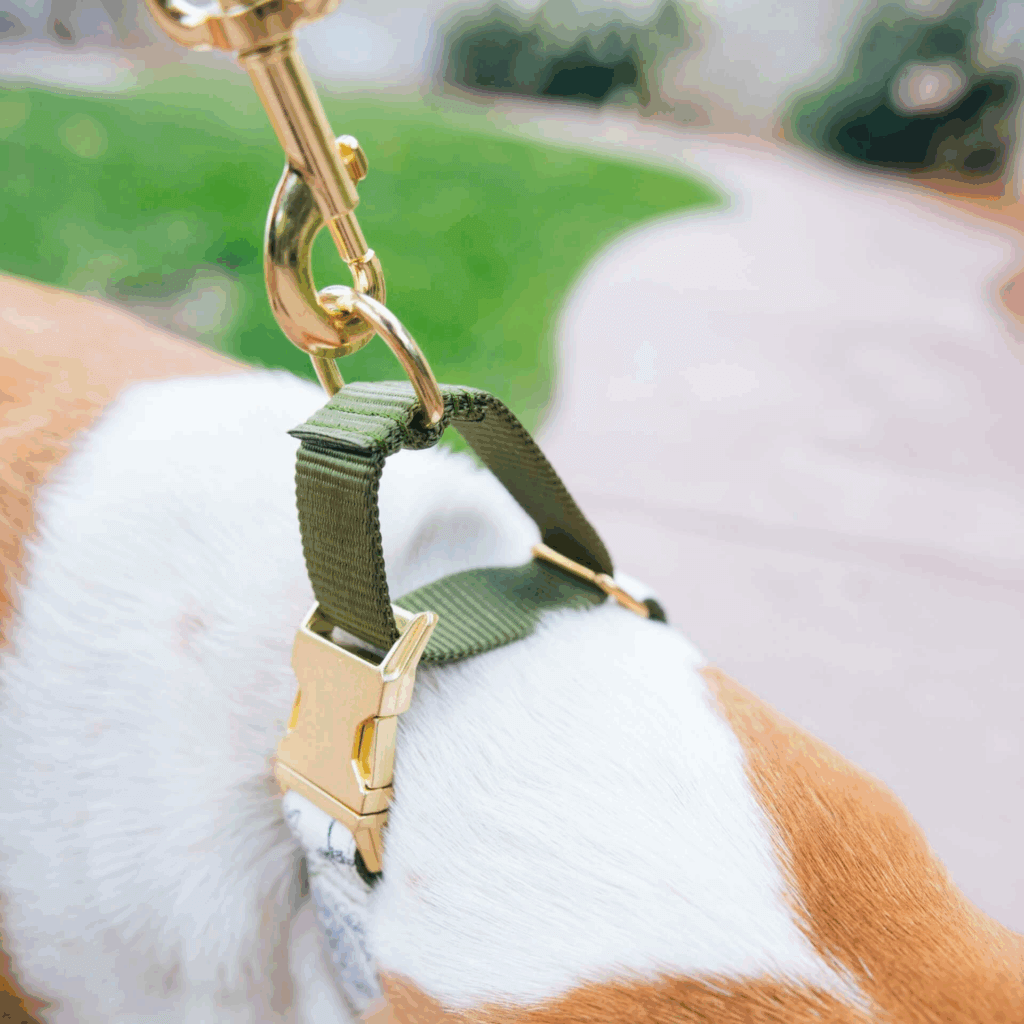
Featured Product: Fabric Martingale Dog Collar
For most Corgis, a flat collar isn’t enough. These collars are fine for carrying ID indoors, but they offer little control on walks, and many Corgis can slip right out of them.
Martingale Collars, by contrast, gently tighten when pulled, making them safer for dogs with a neck wider than their head (sound familiar?). They’re ideal for training, walking, and preventing surprise escapes.
Use a Martingale when:
- Your Corgi tends to pull or dash
- You want more control without harsh pressure
- Your dog has slipped out of collars before
Use a Flat Collar when:
- You need an ID holder at home
- Your dog doesn’t pull or is harness-trained
If you’re unsure, start with a Martingale. It’s the safest, most versatile option for the Corgi’s unique build.
Collar vs Harness for a Corgi: Which to Use & When
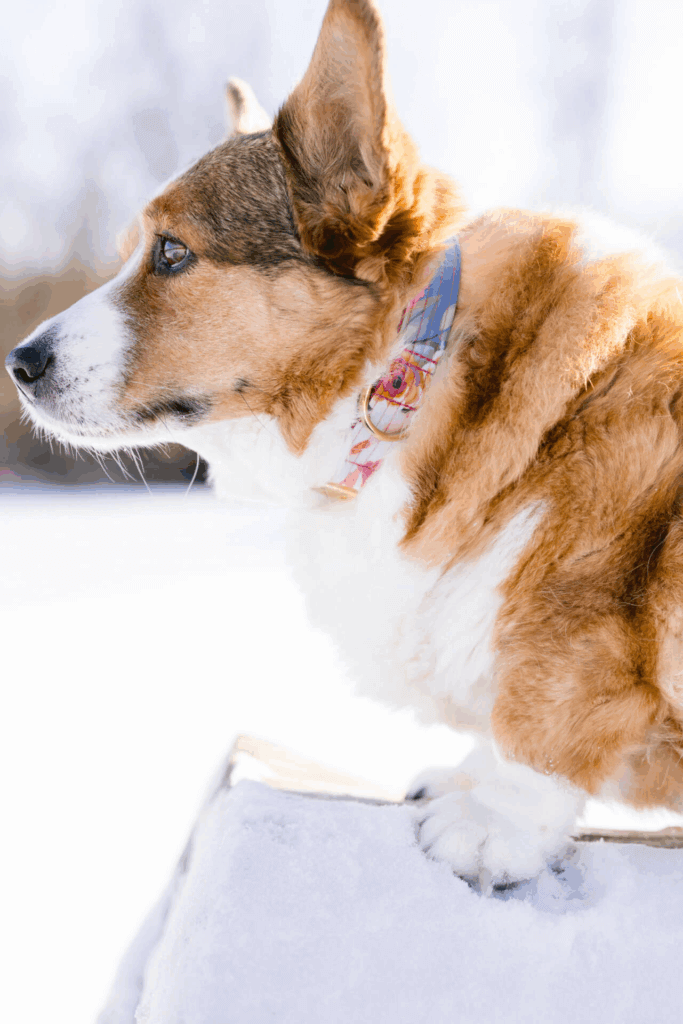
Featured Product: Laminated Cotton Buckle Engraved Dog Collar
You don’t have to choose between a collar or harness, you just need to know when to use each.
Use a collar for:
- Carrying ID tags or engraved buckles
- Training cues like “heel” or “sit”
- Preventing escape when fitted snugly
Use a harness for:
- Walks, especially if your Corgi pulls hard
- Reducing pressure on the neck or throat
- Extra security in busy or distracting environments
That said, not all harnesses work for Corgis. Their broad chests and short legs can cause harnesses to slip or chafe.
Mimi Green’s Step-In Harnesses are designed for dogs like the Corgi, easy to adjust, easy to clip, and hard to wiggle out of. Pair it with a Martingale collar for the best of both worlds.
How to Measure a Pembroke Welsh Corgi for a Collar
Getting the right fit isn’t just about comfort, it’s about safety.
Here’s how to measure your Corgi correctly:
- Use a soft measuring tape around the base of the neck (where the collar sits).
- Add two fingers’ width for breathing room.
- For Martingales, also measure behind the ears for the tighter loop setting.
Most adult Corgis fall between 12–16 inches, but don’t guess, measure.
Puppies grow fast. Recheck their fit monthly and avoid buying collars “to grow into.” A collar that’s too loose can catch on things or slip right off. A collar that’s too tight can cause chafing, hair loss, or worse.
Mimi Green offers custom sizing at no extra charge, so your collar grows with your dog, not against them.
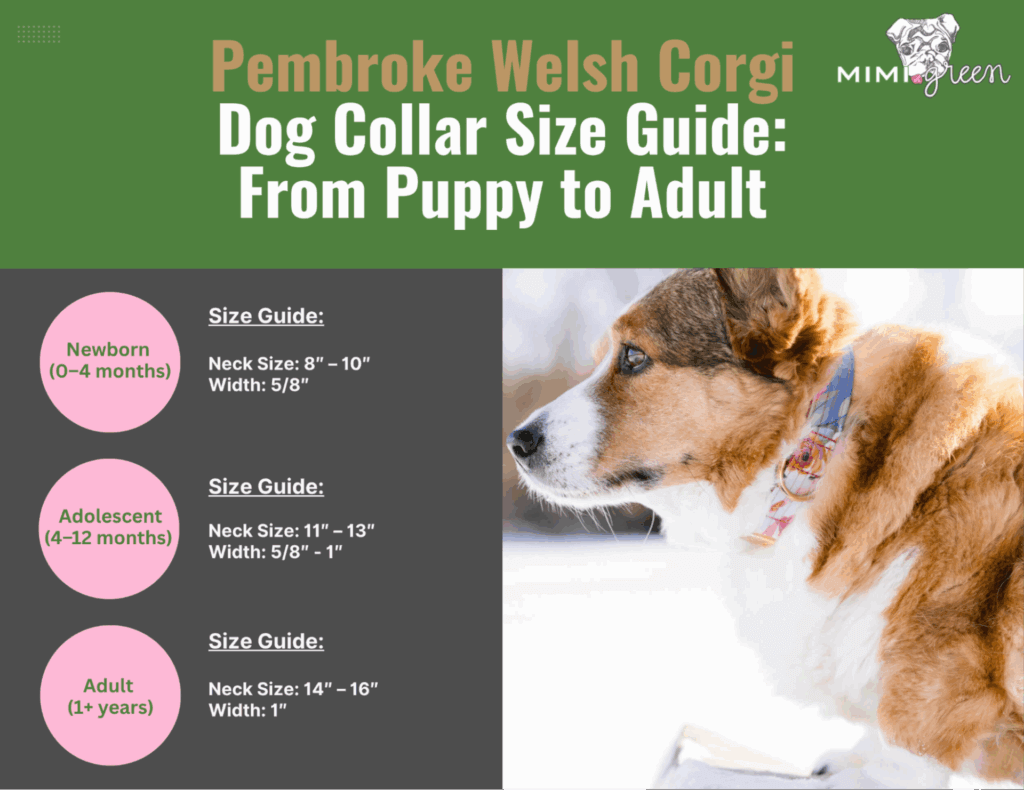
Common Collar Mistakes Corgi Parents Make
Most collar issues come down to fit, materials, or outdated advice. Here are mistakes we see often, and how to avoid them.
- Choosing by weight, not neck size: Corgis may be small, but their necks are broad. A toy-size collar often won’t cut it.
- Buying a collar to “grow into”: Oversized collars are unsafe. They can slip off or get caught while your pup plays.
- Using rough or rigid materials: Stiff nylon or unfinished edges can cause chafing, especially during shedding season.
- Ignoring collar width: Thin collars dig into thick fur. Look for options at least 1 inch wide for even pressure distribution.
- Using collars to correct behavior: Avoid punishment-based training. A negative collar experience can break trust fast.
Corgis are spirited and smart, you want gear that works with them, not against them.
Top Features to Look For in a Corgi Collar
Here’s what to prioritize when shopping for a collar your Corgi will actually love to wear:
- Adjustability: Puppies grow fast. Adult dogs shed and fluctuate seasonally. Your collar should keep up.
- Reflective Stitching: Corgis ride low to the ground, making visibility tough at night. Reflective collars help drivers spot them.
- Lightweight Hardware: Heavy collars can restrict movement or cause fatigue. Our military-grade plastic buckles are lighter, and often stronger, than metal.
- No-Jingle ID: Embroidered or engraved ID eliminates noisy tags and lowers the chance of them falling off.
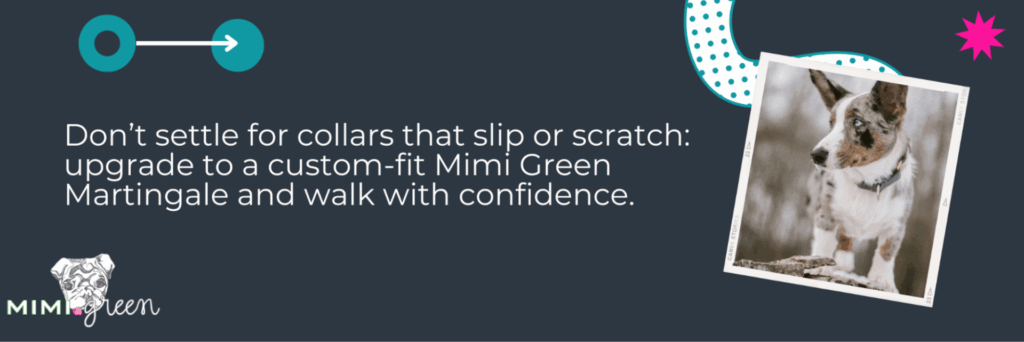
When to Replace a Corgi’s Collar
Even the best collars don’t last forever. Here’s how to know when it’s time for a swap:
- Check for wear monthly: Fraying edges, stretched-out webbing, and sticky buckles all mean it’s time.
- Replace every 6–12 months if your dog is active or growing.
- Look out for seasonal fit issues: During shedding or weight gain, collars may loosen or tighten.
- Wash regularly: Waterproof and Biothane collars wipe clean. Velvet and cotton should be hand-washed and air-dried.
At Mimi Green, we build collars to last, but nothing’s invincible. Regular maintenance and timely upgrades keep your Corgi safe and comfortable.
Puppy vs Adult Corgi Collar Needs
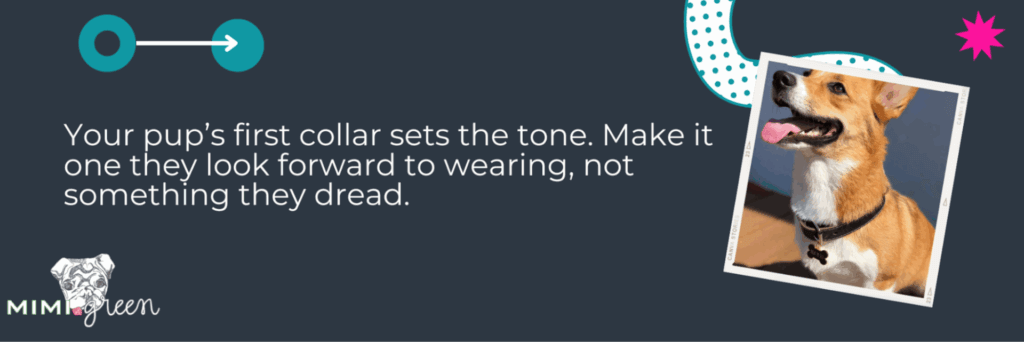
Your Corgi’s collar needs to change as they grow, and quickly, too.
For Puppies:
- Start with a lightweight, adjustable collar that’s gentle on their skin.
- Avoid restrictive tools like prongs or headcollars.
- Prioritize safety and comfort as you build trust.
As They Grow:
- Upgrade to a wider Martingale that supports training.
- Monitor fit closely during growth spurts.
- Consider adding a harness for walks as your dog gets stronger.
Best Collar & Leash Combos for Corgis
Your leash setup should match your dog’s strength, habits, and style. Here’s what we recommend:
- Velvet Collar + Leash: Soft, luxe, and perfect for everyday walks.
- Waterproof Biothane Set: Dries fast, doesn’t stink, and stands up to dirt, rain, and roll-arounds.
- Reflective Collar + Matching Leash: Increases visibility when walking your low-rider at dusk.
- Dual Setup: Use a harness for walking and a collar for ID/training, clip both for extra security.
Want to stand out at the dog park? Mimi Green makes mix-and-match sets in dozens of patterns, materials, and custom sizes.
We hand-make every piece to order, because your Corgi deserves more than just “standard.”
Gear Checklist for Pembroke Welsh Corgi Parents
Before you head out the door with your Corgi, here’s a quick checklist to make sure you’re set up for a safe, stylish walk:
- Martingale or adjustable collar (fits snug, won’t slip off)
- 4–6 ft leash that matches your walking style
- Engraved or embroidered ID (ditch the dangling tags)
- A well-fitted harness (especially for pullers or training)
- Seasonal fit check reminder (growth + shedding = change)
- Poop bag holder (style points matter too)
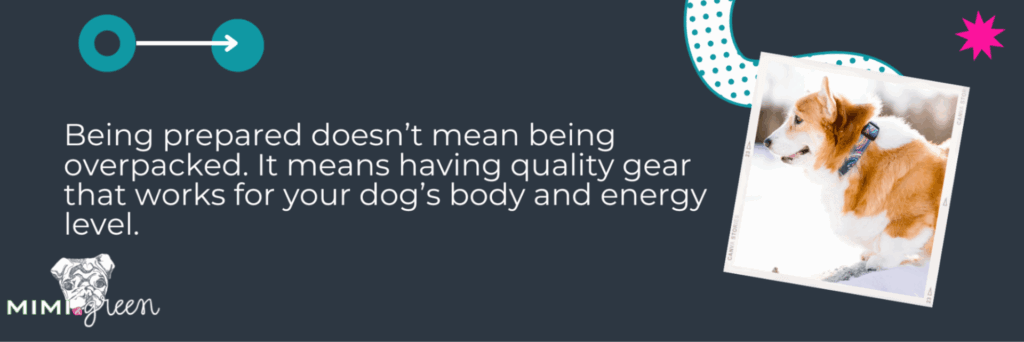
The Mimi Green Difference
Finding the right collar for your Corgi isn’t about picking the flashiest design or whatever’s trending online, it’s about protecting their neck, making your walks easier, and letting their personality shine through.
At Mimi Green, we build collars just for that purpose. Our custom Martingales are made to order in the USA.
We’re a small, family-run shop that treats every collar like it’s for our dog. Because honestly, it is.
Ready to find the collar that fits your Corgi perfectly? 👉 Explore Mimi Green’s Collars Now
FAQ – Corgi Collar Questions, Answered
What’s the best collar for a Corgi puppy? A lightweight, adjustable Martingale in soft nylon or Biothane. It grows with them and reduces escape risk during training.
How often should I resize my Corgi’s collar? Check the fit monthly during puppyhood and every few months for adults, especially after weight gain, loss, or seasonal shedding.
Should I use a harness instead of a collar for walks? Use both. A collar carries ID and training signals. A harness distributes pressure and supports dogs who pull.
Are GPS collars worth it for a Corgi? Yes. Corgis are fast, sneaky, and determined. GPS collars like the Fi help track them and log their daily activity.
What’s better for a leash puller: Martingale or harness? Martingales offer more control than flat collars. For strong pullers, pair it with a front-clip harness.
Can collars damage a Corgi’s neck? If the collar is too tight, too narrow, or made of rough material, yes.
How do I clean my Corgi’s collar? Biothane wipes clean. Velvet and fabric collars should be hand-washed and air-dried. Clean monthly or after muddy outings.
Do collars cause Corgis to shed more? Not directly, but poor fit and abrasive materials can irritate the coat and skin. Choose soft, breathable designs.

